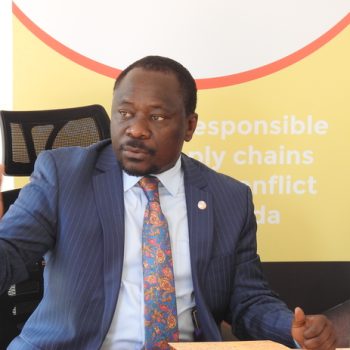NRM Government’s messed up Education Sector is a mockery to Our Children’s future
By Mwijukye Francis
 Last week, Parliament discussed a Report from education committee in regards to hiking of school fees in government schools. This debate is unfortunately a reflection of deeper challenges in the education sector.
Last week, Parliament discussed a Report from education committee in regards to hiking of school fees in government schools. This debate is unfortunately a reflection of deeper challenges in the education sector.
The government of Uganda introduced UPE and USE to provide access to education for all. Given that government doesn’t provide enough funding to the schools, the education policy allows parents to make monetary contributions to schools.
Despite this policy guideline, the President and RDCs have consistently warned Head Teachers against charging any fee from parents. Although this is political gymic to win cheap political capital, it creates confusion among the parents and they don’t know which direction to take. It also gives irresponsible parents a justification not to support the education of their children.
The same government which through the President stops parents from paying anything, charges money for UNSA, SESEMAT, ASSHU, UNEB etc from students.
Currently, government pays UGX 55,000 for every student in O level (USE) per term and UGX 95000 for students in A level (UPOLET) per term while in UPE government spends less than UGX 6000 to each pupil per term.
Unfortunately the same government officials who allocate this money to educate Ugandan children pay between 2 to 5 million per term for their own children to study in private schools. Surprisingly, those paying 5 million study the same curriculum as those of 50,000 UGX and they seat for the same UNEB exams.
Government schools have many problems; they lack enough teachers which prompts head teachers to improvise and get other teachers who are paid privately. They have to pay bills of water, electricity and other utilities; take note that government does not subsidize on these utilities.
More to that, government doesn’t cater for cooks yet students and teachers are supposed to eat from schools, government doesn’t recruit security personnel for schools yet school property should be protected, all these lie in the hands of the Head Teacher.
Majority of the schools lack adequate infrastructure like classrooms and dormitories to cater for learners and staff quarters to cater for staff accommodation. On top of this, they lack well stocked library and equipped laboratories.
When the President tells parents not to pay anything, he makes it hard for head teachers to mobilize them to contribute in solving some of those challenges, yet government is very slow in addressing them. In the end, Head teachers’ hands are tied; they want to run schools, they have inadequate resources and they can’t mobilize resources and when schools fail to perform the teachers are blamed!
In doing all this, the children of the ordinary Ugandans are the ones who suffer the poor quality education while the children of the rich and government officials enjoy quality education in private schools. This consequently creates a class society with the children of the rich having their own education as compared to those of the poor.
A class of education that will produce doctors, lawyers, engineers and a class that produces house maids, bar attendants and night watch men. Subsequently the doctor will marry a lawyer who will give birth to an engineer and on the other hand a night watchman will marry a maid to give birth to a shamba boy; that’s the class society that NRM government has created.
It is dangerous for the President to politicize education instead of allocating enough resources. When he tells parents not to pay anything, he kills the sense of ownership of schools and parents think everything belongs to government hence not doing any monitoring.
The hiking of school fees by schools every term, including government schools is another form of injustice to the Ugandans. Turning education into a business and abandoning it to the private sector is another strategic blunder by government. Creating an environment where ones Pocket determines which school he joins rather than ones intellectual capacity is another sad reality!
All the above are underpinned by a poor planning system in the country. The poor planning was recently seen when the government made serious Policy adjustments without a clear analysis; increasing Science teachers’ salaries, phasing out Primary Teachers Colleges & change of curriculum; And after making such huge Policy shifts the Ministry instituted an Education Policy Review Commission intended to reform the sector, what purpose will it serve when major policy changes have been made?
Government should stop politics and streamline the education sector!
Mwijukye Francis (MP)
The author is a member of Parliament for Buhweju County



















